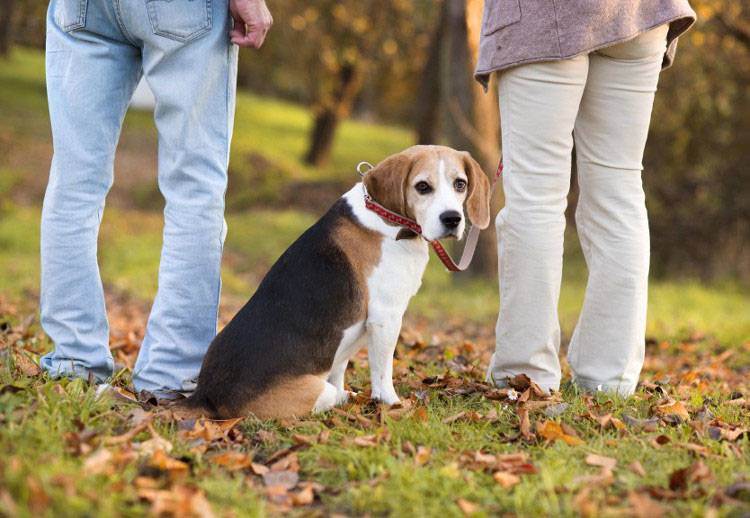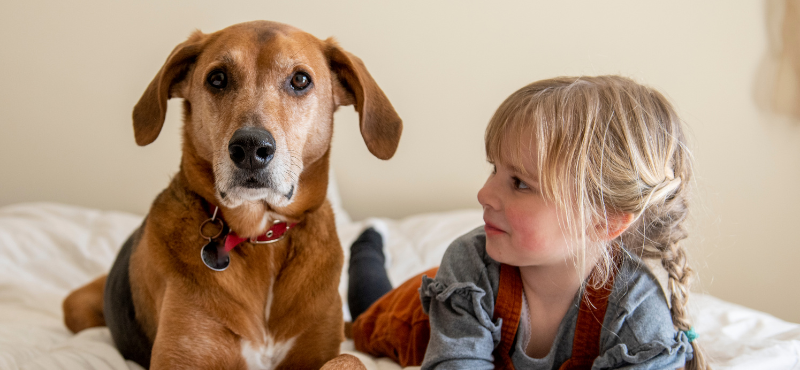Co-parenting your dog after a divorce can be as simple as splitting the week in half or finding a schedule that works best for both parties involved. It’s important to maintain a regular routine to minimize stress for your dog and ensure their behavior is well managed.
Settling pet custody outside of court through mutual discussion and agreement is the best solution. While some dogs adjust well to shared custody, it can be a stressful arrangement for others. Consider the individual needs and adaptability of your dog when making custody decisions.
Ultimately, co-parenting can be a positive way to keep your pet active and maintain a relationship with them, helping the divorced couple remain friendly. Divorce is a challenging and emotionally draining process for any couple, but what happens when you have a dog? Co-parenting your furry friend requires careful consideration, mutual agreement, and a commitment to maintaining a regular routine. It’s essential to ensure the well-being and behavior management of your beloved pet. This article explores the best practices for co-parenting your dog after a divorce, including settling pet custody outside of court, adaptability, and the potential benefits of shared custody. Let’s delve into the world of co-parenting canines and discover how to navigate this new chapter of your life while keeping your beloved pet happy and healthy.
Co-parenting Your Dog After Divorce
Divorce is never easy, especially when it comes to deciding how to handle the beloved family pet. For many couples, their dog is not just a pet but also a member of the family. So, when a relationship comes to an end, figuring out how to co-parent your furry friend can be a sensitive and challenging process.
Benefits Of Co-parenting For Your Dog
Co-parenting your dog after a divorce can have a positive impact on their well-being and overall happiness. Dogs thrive on routine and consistency, and having both parents actively involved in their life can help maintain a sense of stability.
When you and your ex-spouse co-parent your dog, it allows them to have the love, attention, and care from both of you, even if you live in separate households. This ensures that your dog doesn’t feel neglected, stressed, or lonely, as they continue to receive the same level of care and affection that they were accustomed to before the divorce.
The Importance Of Maintaining Regularity
One key aspect of co-parenting your dog after divorce is maintaining regularity. Dogs thrive on routines, and sudden changes can cause them stress and anxiety. Establishing a consistent schedule for visitation, exercise, feeding, and grooming can help alleviate any confusion or discomfort your dog may feel during the transition.
By maintaining a regular routine, your dog will adjust better to the changes in their living situation and overall lifestyle. Consistency is key when it comes to their well-being, as it helps them feel secure and stable amidst the changes happening in their human family dynamic.
Settling Pet Custody Outside Of Court
When it comes to deciding pet custody after a divorce, it is best to settle the matter outside of court. It can be a challenging conversation to have with your ex-spouse, but it’s essential to come to a mutual decision about your pet’s future. This allows you both to have a say in what is best for your dog and ensures that their needs are met.
Sitting down and discussing the arrangements for your pet’s custody together can help you reach a resolution that works for both parties. This can include determining visitation schedules, financial responsibilities, and any other considerations that play a role in co-parenting your dog.
Remember that your dog’s well-being should always be the top priority in these discussions. Settling pet custody outside of court allows you to create a plan that is tailored to your dog’s specific needs and ensures a smooth transition from one home to another.
In conclusion, co-parenting your dog after a divorce is a way to provide them with the love and care they deserve, even if their human family has changed. By prioritizing their well-being, maintaining regularity, and settling pet custody outside of court, you can ensure a positive and stable environment for your four-legged family member.

Credit: www.animalbehaviorcollege.com
Challenges Of Co-parenting Your Dog
Co-parenting a dog after a divorce can come with its own set of challenges. While it may seem like a great idea to share custody of your furry friend, not all dogs adjust well to this arrangement. Considering your dog’s wellbeing is crucial when navigating the complexities of co-parenting. Here are a few challenges to keep in mind:
Not All Dogs Adjust Well To Shared Custody
Just like humans, dogs thrive on routine and stability. For some dogs, the constant change of moving between two homes can be stressful and unsettling. It’s important to understand that not all dogs will adapt easily to shared custody.
Some dogs may struggle with anxiety, separation issues, or behavioral problems when their living situation is constantly changing. It’s essential to observe your dog’s behavior and body language to determine whether co-parenting is a suitable arrangement for them.
Considerations For Your Dog’s Wellbeing
When co-parenting your dog, their wellbeing should be your top priority. Here are a few considerations to ensure your furry friend remains happy and healthy:
- Communication: Open and honest communication with your ex-partner is key when co-parenting your dog. Discussing routines, training methods, and any changes in behavior can help ensure your dog receives consistent care.
- Consistency: Keeping a consistent schedule and routine is vital for your dog’s wellbeing. This includes feeding times, exercise routines, and sleeping arrangements. Consistency provides a sense of security and reduces stress.
- Transition Periods: When transitioning between households, create a calm and positive environment for your dog. Give them time to adjust to the change in surroundings and establish a sense of familiarity. Providing familiar toys, bedding, and even a piece of clothing with your scent can help ease their anxiety.
- Professional Support: If you notice your dog struggling with the co-parenting arrangement, consider seeking professional help. A veterinarian, dog trainer, or animal behaviorist can provide guidance and support to ensure your dog’s emotional and behavioral needs are met.
Co-parenting your dog can be a fulfilling and rewarding experience when approached with the right mindset and care. By considering your dog’s individual needs and adapting to their specific requirements, you can create a positive co-parenting arrangement that benefits everyone involved.
Legal Considerations
When going through a divorce and co-parenting your dog, there are important legal considerations that need to be addressed. These considerations involve determining ownership of the dog and understanding the role of courts in pet custody. While it is ideal to settle pet custody outside of court through mutual agreements, sometimes legal intervention is necessary. Let’s explore these legal considerations in more detail.
Determining Ownership Of The Dog
One of the primary legal considerations when co-parenting your dog after a divorce is determining ownership. While it is common for couples to purchase a dog together, courts typically view animals as property. The person whose name appears on the receipt or who paid for the dog may be entitled to keep them. However, it’s important to note that ownership can be a complex issue, and courts may consider other factors such as who has been the primary caregiver or who can provide the best environment for the dog’s well-being. It is advisable to consult with a family law attorney to understand the specific laws and regulations regarding pet ownership in your jurisdiction.
The Role Of Courts In Pet Custody
If you and your ex-partner cannot come to a mutual agreement regarding the custody of your dog, the court may need to intervene. While some courts consider pets as property, others may take into account the best interests of the dog when determining custody. This can include factors such as the ability to provide a stable and suitable home environment, the financial responsibility of each party, and the emotional bond between the dog and each owner. The court’s decision may involve visitation rights and a detailed custody schedule to ensure both parties have opportunities to spend time with the dog. It’s essential to understand the specific laws and procedures related to pet custody in your jurisdiction and seek legal advice if needed.
In conclusion, legal considerations play a crucial role in co-parenting your dog after a divorce. Determining ownership and understanding the role of courts in pet custody are essential steps in ensuring the well-being of your furry companion. By seeking legal guidance, you can navigate these complexities and reach a resolution that promotes the best interests of your dog.
Tips For Successful Co-parenting
Successfully co-parenting a dog after divorce is crucial for the well-being of the pet. It is important to establish a regular and consistent schedule that benefits the dog’s stress levels and behavior. Open communication and mutual agreement between the ex-partners play a key role in determining the best arrangements for the pet’s future.
Maintaining Open Communication
Effective communication is key when co-parenting your dog after a divorce. Keeping the lines of communication open with your ex-partner will ensure that both of you are on the same page when it comes to your furry friend. Regularly discussing your dog’s needs, routines, and any issues that may arise will help in providing a consistent and stable environment for your pet.
Establishing Clear Ground Rules
When co-parenting your dog, it is essential to set clear and agreed-upon ground rules. This includes outlining feeding schedules, exercise routines, training methods, and any other vital aspects of your dog’s care. Having these rules in place will help maintain consistency and prevent confusion for your furry friend.
Keeping Your Dog’s Best Interest In Mind
Always prioritize your dog’s well-being when co-parenting after a divorce. Remember that your dog is experiencing a significant change in their living situation, and it’s crucial to minimize stress and anxiety as much as possible. Make decisions based on what is best for your dog’s physical and emotional health rather than personal preferences or conflicts between you and your ex-partner.
Resources For Co-parenting Dogs
Co-parenting a dog after a divorce can be challenging, but with the right resources, it can become a smoother process. Whether you’re looking for professional mediation services or online support communities, there are options available to help you navigate this new chapter of your pet’s life. These resources can provide guidance, support, and solutions to ensure that both you and your ex-partner can co-parent your dog effectively and reduce any stress or confusion that may arise.
Professional Mediation Services
If you and your ex-partner are finding it difficult to agree on important aspects of co-parenting your dog, professional mediation services can be a valuable resource. Mediators experienced in pet custody arrangements can help facilitate discussions, provide guidance, and assist in creating a comprehensive co-parenting plan that considers the best interests of your furry friend. These services aim to promote healthy communication and reach mutually beneficial agreements, ensuring a positive co-parenting experience for all parties involved.
Online Support Communities
Online support communities are an excellent resource for individuals going through co-parenting challenges. These communities bring together pet owners who are facing similar circumstances, providing a platform to share experiences, seek advice, and find emotional support. Connecting with others who have gone through or are currently going through the same situation can provide a sense of reassurance and solidarity. These communities also offer a wealth of information, including tips on successful co-parenting, training advice, and recommended resources to make the transition easier for your dog.
Co-parenting a dog after a divorce requires understanding, cooperation, and effective communication. By utilizing resources such as professional mediation services and online support communities, you can ensure a smooth transition for your furry family member. Remember, the well-being of your dog should always be a top priority, and these resources can help you navigate the challenges of co-parenting to provide the best possible care and love for your beloved pet.

Credit: gabriellehartley.com

Credit: caweltilaw.com
Frequently Asked Questions Of Divorced And Co-parenting Your Dog?
How Do I Co Parent My Dog With My Ex?
Co-parenting a dog with your ex can be done by splitting the week in half or having weekdays with one and weekends with the other. Regularity is important for your dog’s well-being and behavior. It’s best to settle pet custody outside of court through mutual agreement.
Not all dogs adjust well to shared custody, so consider their stress levels. The person who paid for the dog is typically entitled to keep them, but it’s not always black and white. Sharing custody can help maintain a relationship with your pet and potentially keep a friendship with your ex.
What To Do If You Break Up And Have A Dog Together?
To co-parent your dog after a break-up, try to agree on a custody schedule outside of court. Splitting the week in half or sharing weekdays and weekends could work. Keep the schedule consistent to reduce stress for your dog and manage their behavior.
How Well Do Dogs Adapt To Joint Custody Divorce?
Dogs may not adapt well to joint custody divorce. Some dogs handle it fine, but for many, it’s a stressful way to live.
Who Gets To Keep The Dog After A Breakup?
In a breakup, the person who paid for the dog is usually entitled to keep them, but it’s not always set in stone. It’s best to settle pet custody outside of court and come to a mutual decision. Sharing custody can be a great way to keep your pet active and satisfied.
Conclusion
Co-parenting your dog after a divorce can be challenging, but with open communication and a shared commitment to your furry friend’s well-being, it is possible to create a successful arrangement. By establishing a consistent schedule and maintaining regular contact, you can help reduce your dog’s stress levels and ensure a smooth transition between homes.
Remember, your dog’s happiness and stability should be the top priority, so approach co-parenting with empathy and understanding. With patience and cooperation, you can navigate this new chapter of your lives while still providing the love and care your dog deserves.







